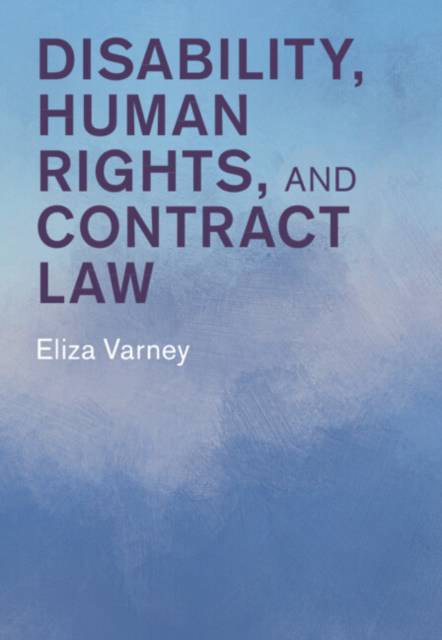
- Afhalen na 1 uur in een winkel met voorraad
- Gratis thuislevering in België vanaf € 30
- Ruim aanbod met 7 miljoen producten
- Afhalen na 1 uur in een winkel met voorraad
- Gratis thuislevering in België vanaf € 30
- Ruim aanbod met 7 miljoen producten
Zoeken
€ 187,45
+ 374 punten
Omschrijving
An initial glance at the intricate web of the English legal system may perceive human rights and private law as paths leading to different realms. In this vision, contract law, shaped by economic concerns, is confined to a role of enforcing agreements. Yet, given ageing population trends and the increase in the number of people with mental health conditions, such as dementia, entering into grossly asymmetrical contracts, we must re-assess the lens through which we perceive contract law. This book calls for a re-examination of the role of contract law in light of the UN Convention on the Rights of Persons with Disabilities (UNCRPD), insisting on an approach that responds to both economic and social concerns. The book aims to contribute towards bridging the areas of disability equality and contract law, questioning the compatibility of key principles and doctrines in contract law with UNCRPD values, including autonomy and human dignity.
Specificaties
Betrokkenen
- Auteur(s):
- Uitgeverij:
Inhoud
- Aantal bladzijden:
- 264
- Taal:
- Engels
- Reeks:
Eigenschappen
- Productcode (EAN):
- 9781316516638
- Verschijningsdatum:
- 31/07/2025
- Uitvoering:
- Hardcover
- Formaat:
- Genaaid
- Afmetingen:
- 170 mm x 244 mm
- Gewicht:
- 621 g

Alleen bij Standaard Boekhandel
+ 374 punten op je klantenkaart van Standaard Boekhandel
Beoordelingen
We publiceren alleen reviews die voldoen aan de voorwaarden voor reviews. Bekijk onze voorwaarden voor reviews.







